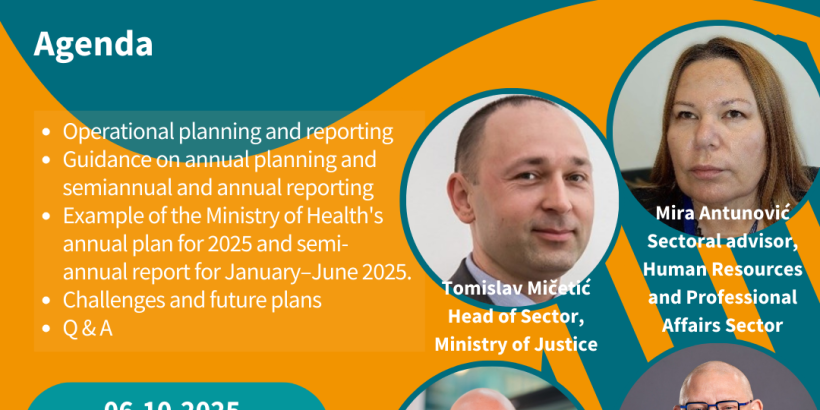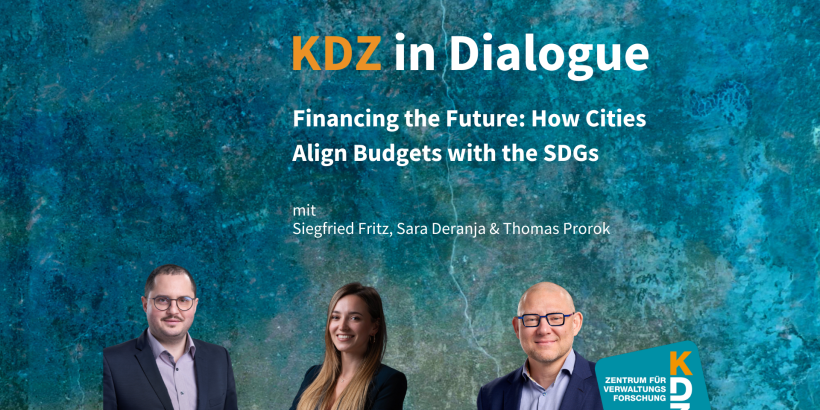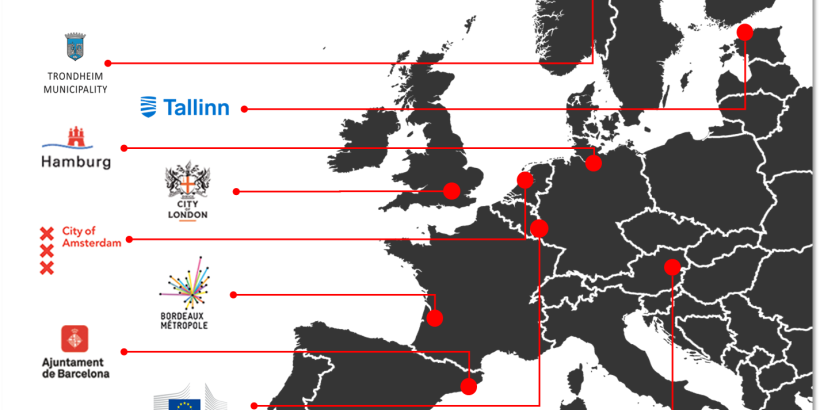The digitalization report "Empowering Progress with Digital Transition in Western Balkan and Moldova Local Governments" within the BACID III project (Building Administrative Capacities in the Danube Region and Moldova) is an important milestone to show the current developments, best practices but also gaps where the countries in the Western Balkan and Moldova still lack resources, political will, or knowledge. It’s the first report of its kind in South-East Europe and will help local and central governments to gain an overview of the digitalisation efforts in the region and identify good practices and a way forward.
The focus of the report are activities of local governments and therefore their impact on digitalization, open data and cybersecurity among others. The efforts differ from country to country as each country develops solution at their own pace and tailored to their current needs.
Fit for the future or in other words develop what your municipality needs
In the report there are several areas that were highlighted as they are the building blocks of a society ready for digitalisation of the public sector and installing e-government services for the benefit all citizens such as infrastructure, skills, e-government, open data, cybersecurity and transformative ecosystems.
When we think of sustainability, we oftentimes think of one area at a time, but acting sustainable is not limited to one task at a time. The digital transformation of municipalities and cities does not happen outside of other developments in the world. Part of the sustainable development goals (SDGs) shows that all areas in a society are intertwined. When we think about housing we also must think about (sustainable) transportation and how to better regulate traffic for example. Data-based solutions for municipalities and cities help them in the future to better understand the needs of citizens and to tailor specific digital services to their needs (also with the help of artificial intelligence). At the same time to be “fit for the future” as a municipality, improvements due to data-driven technologies need to be sustainable as well.
Digital transformation can only work if it is facilitated and follows a strategy for not only central government but also for the local level. These strategies can be roadmaps that local governments can follow in their implementation of these technologies. According to the NALAS survey within the report 60% of the participants of local government associations (LGAs) said that there are existing strategies to help facilitate digital transformation. The LGAs are also involved in the implementation of these strategies on a local level with over 75% saying that they are involved. This is important since it shows that the LGAs have a vital role in the implementation of digital transformation strategies on a local level. NALAS and KDZ are continuing to empower LGAs to participate in intergovernmental dialogue, provide important data and help local governments with their strategies.
What are the key findings of the report?
Combining desk research, experiences in the countries and different studies (including a recent one by NALAS for the digitalisation working group) as well as events and webinars organized at the initiative of NALAS, the authors came up with five theses.
- The potentials of digitalisation are not sufficiently tapped by municipalities in the WB and Moldova. And the more fragmented the municipal landscape, the more central level coordination is required.
- Digitisation and sustainability do not yet have such a high priority in the WB and Moldova municipalities and there is a lack of holistic nationwide strategies and support (e.g., data exchange, electronic identities, comprehensive e-service integration, alignment of strategic documents).
- The organisational anchoring of sustainability and digitalisation is a critical success factor for a sustainable positive development of municipalities.
- Lack of information on existing funding opportunities hinders the digitisation of municipalities in the WB6 and Moldova.
- Lack of digital competences in the WB6 and Moldova municipalities reduces the speed of implementation and increases the risk of cyber-attacks.
What are the specifics of the WB6 countries and Moldova?
The countries highlight different aspects of the digitalisation process. For most of them it is the improvement of good governance principles, e.g. transparency, participation, openness, accountability, and integrity that is most important in the process of digitalisation. But also, as a resilience factor locally for the business sector and the citizens. Some highlighted the importance of having innovative approaches to detect urban issues and ensuring an environment with an infrastructure that is resilient in crisis management and in general creating human-centric solutions.
The survey also gave an insight on the weaknesses of local governments regarding digitalization efforts. Especially human resources and poor digital infrastructure result in citizens not really creating a habit to use these services, since they are not available or poorly available. Also, the slow progress in expanding digital services that are developed and working.
According to the survey there are on the other hand also opportunities to create a sustainable digital infrastructure. The LGAs highlighted that large cities or administrations can play a supportive role in hosting platforms and offering services to smaller cities and municipalities. Furthermore, the various existing support programs need to be used efficiently to achieve progress faster and create more awareness within municipalities but also regarding the communication to citizens. To achieve all of this, there need to be financial resources, which are oftentimes lacking in the region. Also, the legal framework is not sufficient and there is a lack of government support. Since it is necessary to train administrative personnel as well as create awareness and digital literacy in residents, the competition between the private and public sector is a major threat to the development. Since the public sector can’t compete with the salaries in the sector, it’s not possible to implement the technologies on a local level since there is a lack of knowledge.
Where to go from here?
Within the report there are several areas detected, where the respective countries can focus on next and how to approach these areas.
- Enhancing digital skills in local government associations as well as local governments to enhance their role as a resource for municipalities within their region and country.
- Building up digital competences in municipalities in a short time through (online) training to be prepared for the future workplace and be prepared against cyber-attacks.
- There needs to be a multilevel strategic approach, where local governments are involved early on to avoid a high administrative and economic burden on them. Coordinating the members of the LGAs is a vital role which NALAS focuses on in the future.
- Digital infrastructure is the backbone for implementing digital services and there needs to be synergies within the countries regarding data centres, 5G networks as well as smart city concepts to ensure a sustainable and logical approach. LGAs can be supported especially around financing these steps with their knowledge of funding opportunities and cost-effectiveness due to knowledge of implementations in other countries and regions.
- Data usage needs to be increased as well as creating interoperable local data platforms, since they are the centre of very digitalization approaches. Data sharing is an important puzzle which needs to be focuses on by LGAs with the support of NALAS. Leveraging and collecting data creates an environment which encourages innovations both in the public and private sector. AI, cloud computing and open-source solutions are growing in their importance and are the topic of many funding programs.
To conclude it is important to highlight that all municipalities must approach the digitalization process from their individual starting position. Ther is no “one size fits all” approach. Sustainability and digitalization must go hand in hand to create a better future for citizens, which can be achieved by a holistic approach on the local level. Involving citizens to create community engagement and idea contribution is also a sustainable approach. Finally municipalities need to have a clear strategy with a timeline and a structured approach. Once solutions are implemented there need to be clear responsibilities insuring the development and functionality of the service.
Going forward NALAS and KDZ will focus on highlighting good practices in the region even more, so that the countries can benefit from innovations already made elsewhere. To make this more accessible there can be databasis and platforms where these good practices are highlighted with details like country of implementation, costs, contact details and possible further steps.
For the report the knowledge of digitalization expert Christian Rupp was vital, who has years of experience in digitalization efforts of public administration throughout Europe and the European Union. In close collaboration with digitalization officer Jana Belcheva Andreevska from NALAS we were able to make this first report, which is only a starting point.


